Best Ayurvedic Herbs For Digestion
Best Ayurvedic Herbs For Digestion
The foundation of good health, according to Ayurveda, is keeping a healthy digestive tract. Our body can efficiently absorb nutrients, expel waste, and maintain internal harmony when our digestive fire, “agni,” is strong and balanced.
With their innate healing abilities, ayurvedic herbs are essential for fostering and sustaining the health of our digestive systems.
This article will examine some of the top Ayurvedic digestive herbs. These herbs have been used for generations to treat digestive problems, promote digestion, reduce inflammation, and reestablish the natural balance of the gastrointestinal tract.
Incorporating these herbs into your daily regimen may improve nutrient absorption, establish proper digestion, and improve overall health.
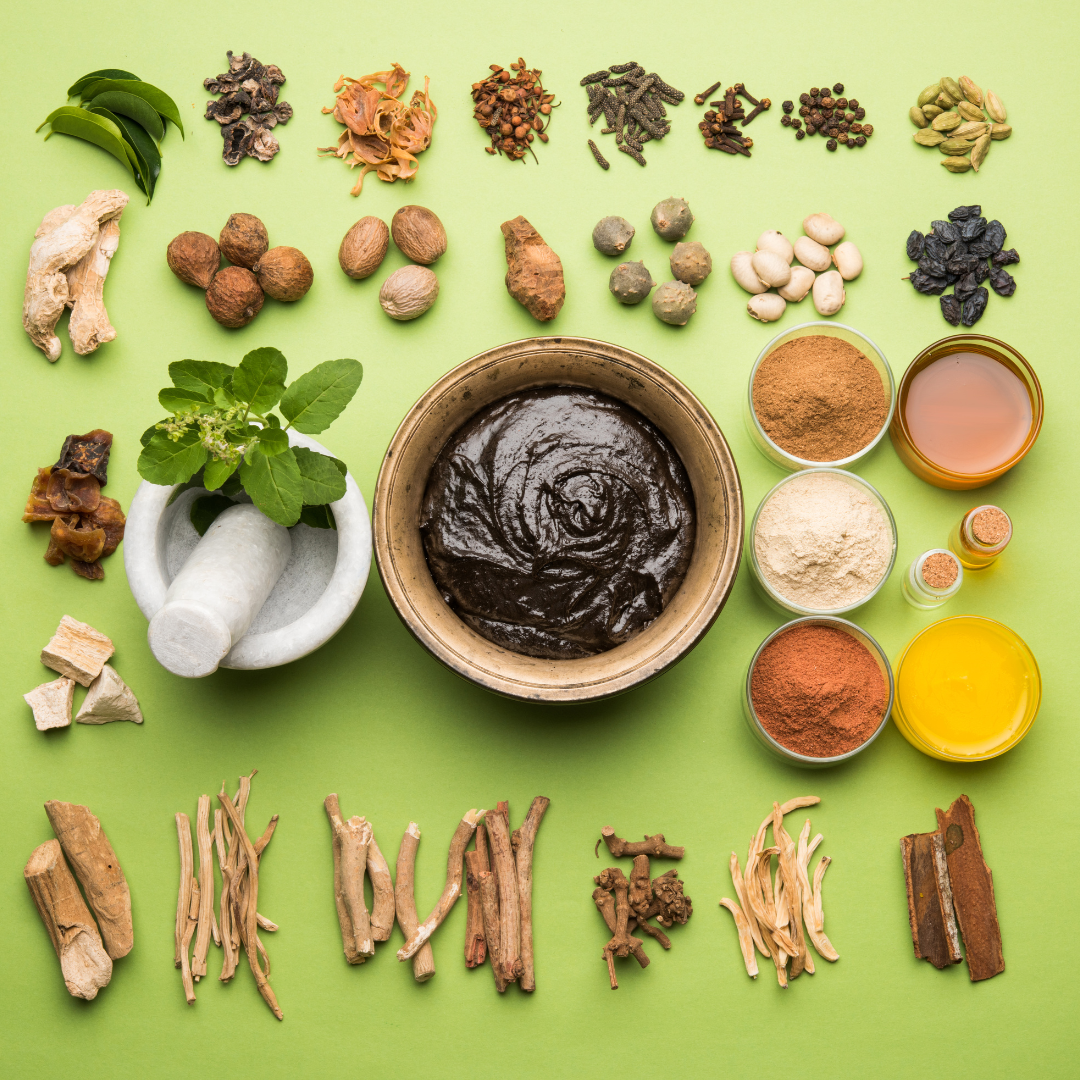
The Powerful Benefits Of Ayurvedic Herbal Medicine
Ayurvedic herbs are essential to Ayurvedic medicine, a conventional medical system with roots in India.
Herbs are integral to creating the harmony and balance that Ayurvedic treatment seeks to foster in the body, mind, and spirit.
The following are some specific advantages of Ayurvedic herbs in Ayurvedic medicine:
1. Balancing The Doshas
According to Ayurveda, the three doshas—Vata, Pitta, and Kapha—represent various body parts and functions and control the body.
Herbs from the Ayurvedic tradition balance these doshas and advance general health. For instance, the Vata dosha can be balanced, and medicines like Ashwagandha and Brahmi can support the nervous system's health.

2. Aiding Digestion
Ayurvedic herbs are frequently used to aid a healthy digestive system. Peppermint, ginger, and Triphala can assist regular bowel movements, improve digestion, and increase nutrient absorption. They can also help relieve bloating and gas.
3. Detoxification
Ayurvedic medicines have detoxifying characteristics that assist the body in ridding itself of impurities and enhance general health.
Herbs, including Triphala, manjistha, and neem, are frequently utilized for their detoxifying properties.
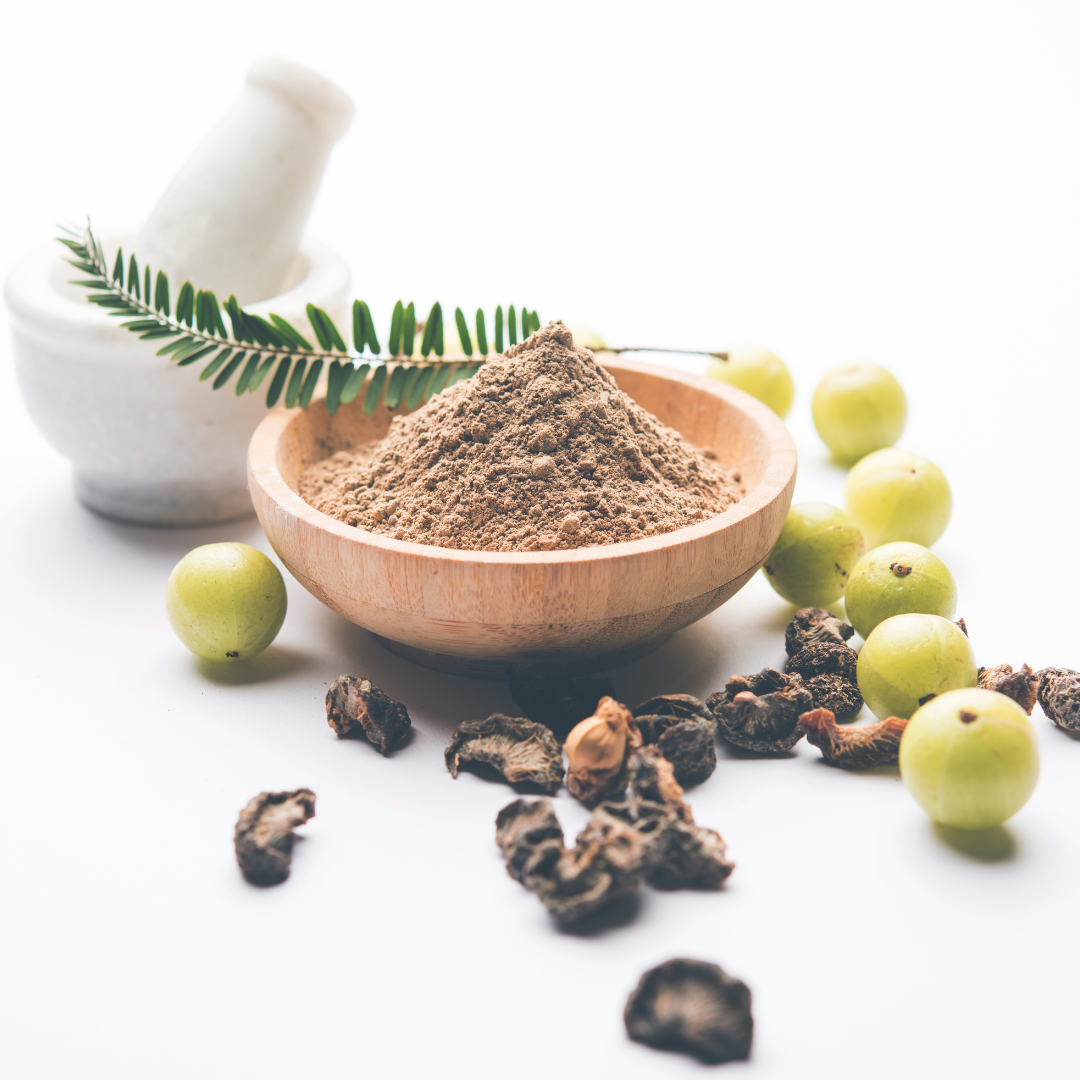
4. Immunity-Boosting
Ayurvedic herbs are well-known for their immune-supportive qualities. The immune system is thought to be strengthened, infections are prevented, and spices, including Amalaki, Tulsi, and Guduchi, improve overall disease resistance.
5. Promoting Mental Well-Being
The relaxing and stress-relieving properties of herbs like Brahmi, Shankhpushpi, and Jatamansi are well known. They can boost calmness and relaxation while improving attention, concentration, and memory.

6. Supporting Musculoskeletal And Joint Health
Ayurvedic herbs are frequently used to promote joint health and lower inflammation. With their ability to reduce inflammation, spices like turmeric, guggul, and Boswellia serrata (shallaki) are used to treat illnesses, including arthritis and joint pain.
7. Improving Skin Health
Ayurvedic herbs are used to encourage healthy, glowing skin. Neem, Manjistha, and Turmeric are some examples of herbs with antibacterial, anti-inflammatory, and skin-nourishing effects.
They can aid with various skin issues, such as acne, eczema, and psoriasis, and promote a clear and radiant complexion.

8. Assisting Women's Health
Ayurvedic herbs are frequently utilized to assist women's health issues. Herbs like Shatavari, Ashoka, and Lodhra are known for regulating hormones, promoting reproductive health, and treating menstruation irregularities.
9. Taking Care Of Respiratory Disorders
Ayurvedic herbs support respiratory health and treat respiratory disorders. The respiratory system is known to benefit from the expectorant, bronchodilatory, and calming properties of herbs, including tulsi, licorice, and vasaka.

10. Supporting Heart Health
Ayurvedic herbs support cardiovascular health. Herbs like Arjuna, Garlic, and Guggul are well-known for their cardio-protective properties.
They could promote normal blood pressure, keep cholesterol levels in check, boost circulation, and lessen the risk of cardiovascular illnesses.
11. Promoting Liver Health
According to Ayurvedic medicine, several herbs can help the liver detoxify and maintain its health.
Hepatoprotective qualities are well-known for spices, including Kutki, Bhumyamalaki, and Punarnava. They could support overall liver health by supporting liver function, cleansing, and rejuvenation.

12. Boosting Energy And Vitality
Ayurvedic herbs are used to boost energy and increase vitality. Rasayanas, or plants that promote rejuvenation, include licorice, shilajit, and ashwagandha.
In addition to promoting general life and well-being, they may help lessen fatigue, improve stamina, increase energy, and boost energy levels.
13. Increasing Sleep Quality
Ayurvedic herbs are used to encourage sound sleep and treat sleep-related conditions. Herbs like Jatamansi, Ashwagandha, and Brahmi have calming and sleep-inducing effects. They could aid in relaxing, promoting better sleep, and treating insomnia or other sleep-related issues.

14. Advancing Urinary Health
Ayurvedic herbs frequently advance urinary system health. The diuretic and kidney-supportive qualities of herbs like gokshura, punarnava, and Chandra Prabha vati are well known. They might support kidney function, preserve urinary tract health, and promote healthy urine flow.
15. Improving Sexual Health
Ayurvedic herbs can help with sexual health issues and encourage healthy sexual behaviour. “Vajikaran herbs” refer to plants like Safed Musli, Ashwagandha, and Shatavari. They could support fertility, boost desire, improve sexual performance, and advance reproductive health.
Although Ayurvedic herbs have a long history of traditional use, it is still necessary to seek the advice of a certified Ayurvedic practitioner or healthcare professional before using them as medications.
They can advise you on the right herbs, dosages, and combinations based on your particular requirements and medical situations.
Best Ayurvedic Herbs For Digestion
Ayurveda emphasizes maintaining a healthy digestive system, which is crucial for overall well-being. Here are some of the best Ayurvedic herbs for digestion and their details:
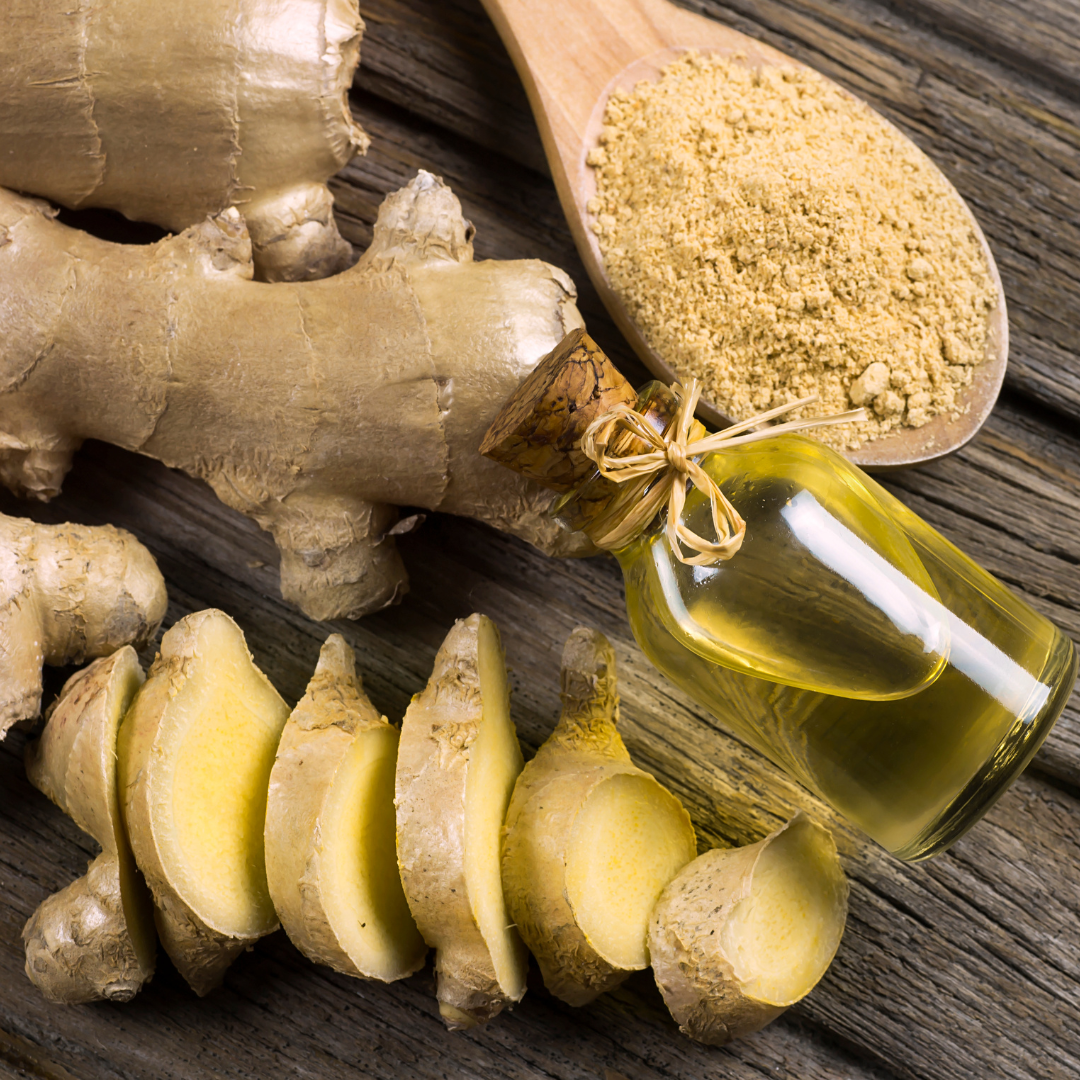
1. Ginger (Zingiber officinale)
One of the most revered Ayurvedic plants, ginger (Zingiber officinale), is well known for its exceptional digestive qualities.
Encouraging the creation of digestive enzymes promotes proper digestion and nutritional absorption.
Ginger, another well-known treatment, efficiently relieves the symptoms of indigestion, including bloating, gas, and discomfort.
Being able to calm the stomach and lessen nausea makes it a useful tool for battling nausea brought on by various circumstances, such as motion sickness and pregnancy.
Because of its adaptability, ginger can be easily incorporated into everyday routines and is a great choice for encouraging healthy digestion and providing relief from digestive issues. It can be consumed fresh, made as tea, or used as a culinary spice.
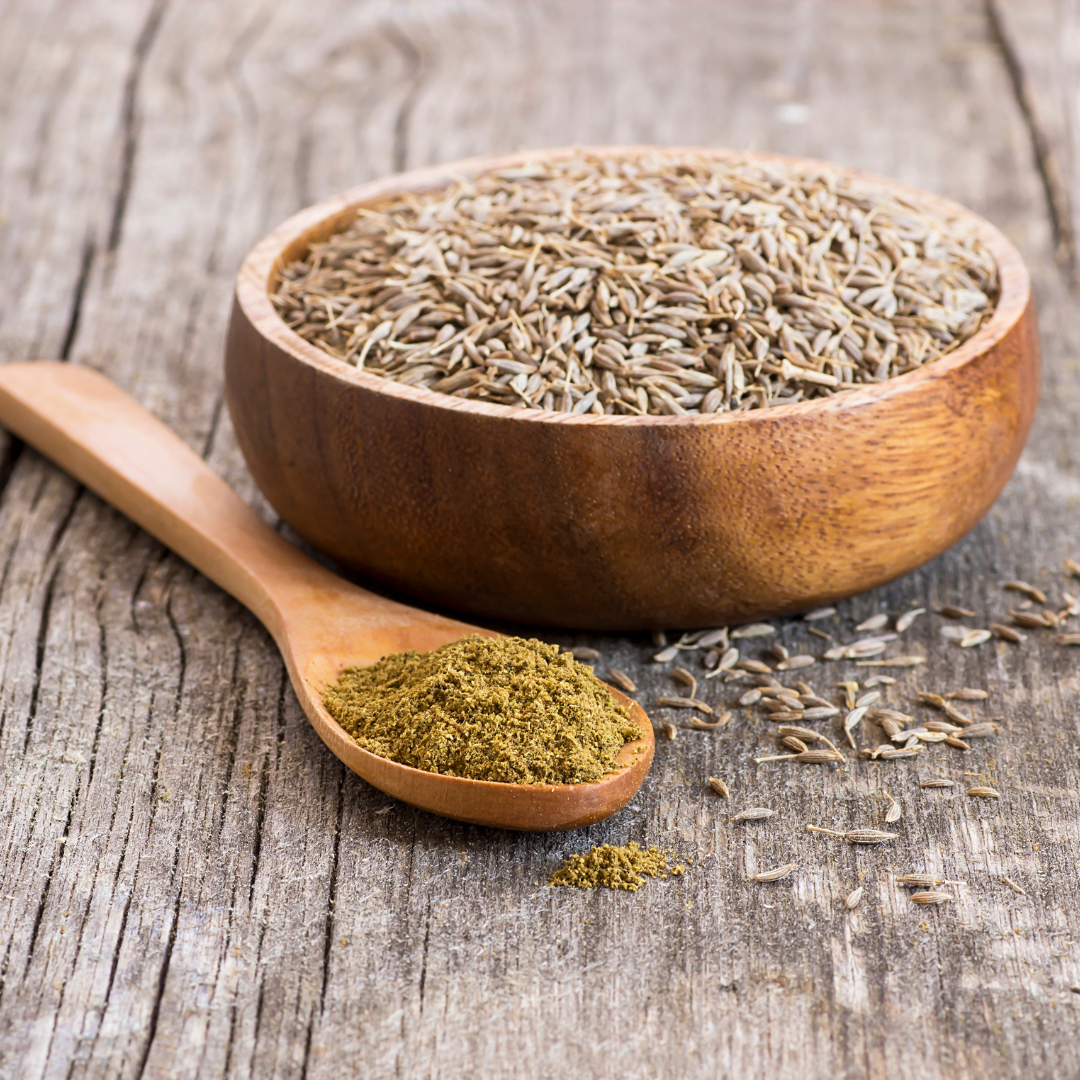
2. Cumin (Cuminum cyminum)
Cumin (Cuminum cyminum) is a popular Ayurvedic plant renowned for its great digestive effects. It encourages digestive enzyme release, which aids in effective digestion and nutrient absorption.
In addition to relieving stomach discomfort, cumin helps to reduce bloating and flatulence. Cumin is a flexible herb that can be incorporated into daily routines to support ideal digestion and improve general digestive health, whether used as a culinary spice or eaten as cumin water or tea.
Cumin is an important ingredient in Ayurvedic cooking and natural therapies for digestive wellness because of its capacity to improve digestion and relieve common digestive disorders.
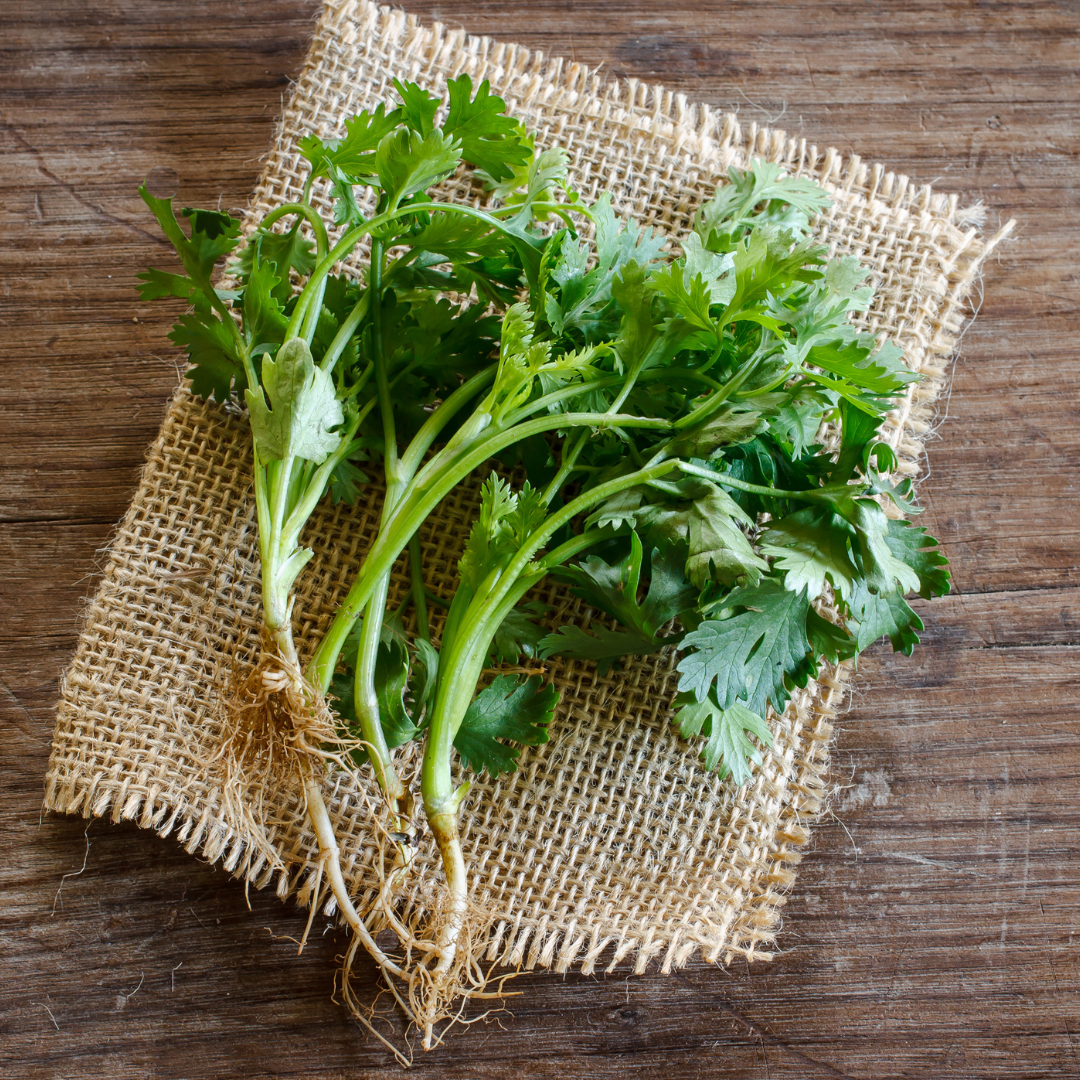
3. Coriander (Coriandrum sativum)
An ancient Ayurvedic herb known as coriander (Coriandrum sativum) has existed to promote digestion for a long time. Due to their digestive advantages, coriander seeds are particularly prized.
Due to its ability to encourage digestive enzyme secretion, coriander helps increase appetite and facilitate digestion.
It is renowned for its astringent and carminative qualities, which ease gas, bloating, and digestive discomfort.
Coriander is a simple and effective technique to improve digestion and advance overall digestive wellness. It may be added to food as a spice or used to make coriander water or tea.
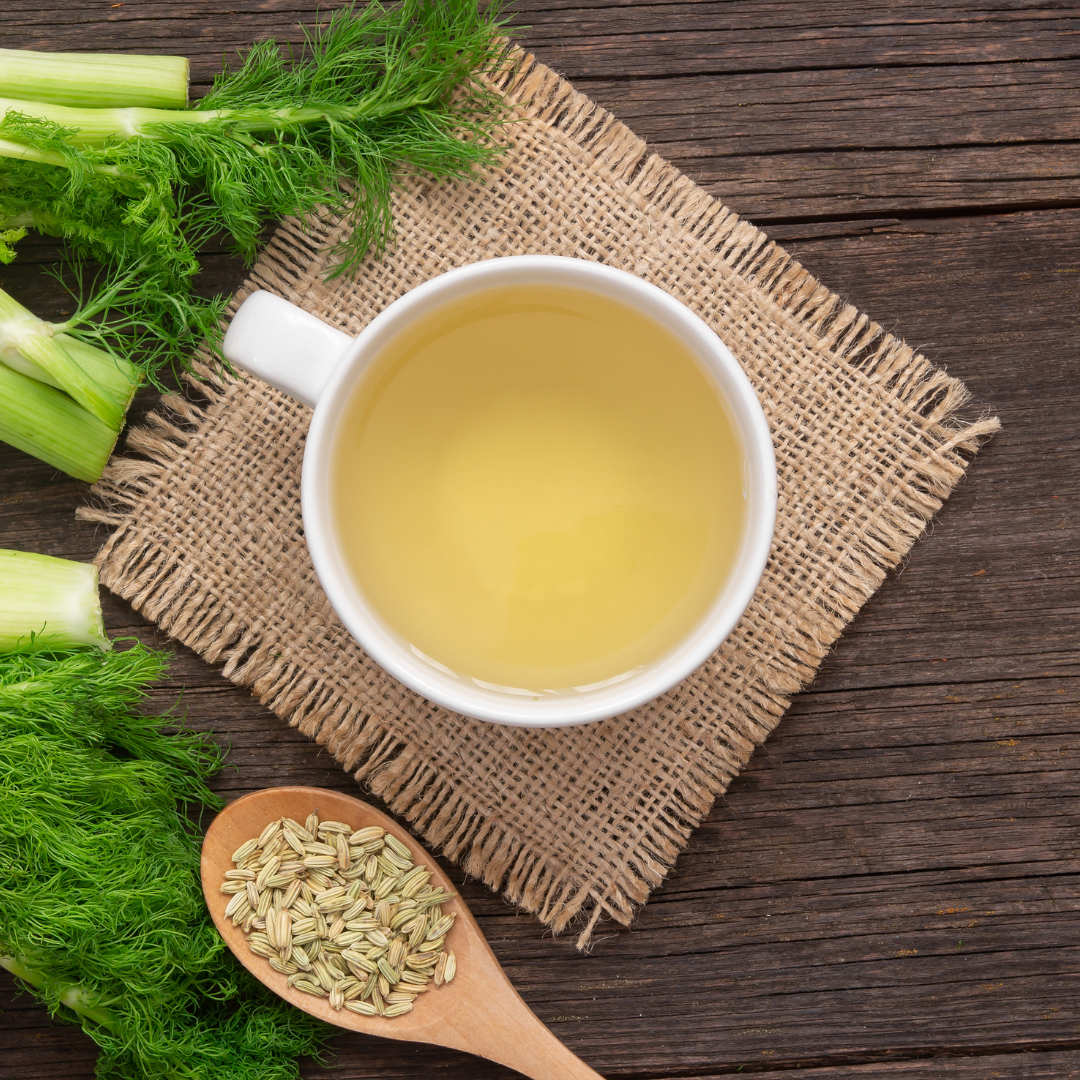
4. Fennel (Foeniculum vulgare)
Ayurvedic practitioners have utilized the common plant fennel (Foeniculum vulgare) to aid digestion for millennia.
The carminative qualities of fennel seeds ease intestinal distress and make them particularly prized.
Bloating, indigestion, and flatulence are all decreased by the chemicals found in fennel seeds, which aid in relaxing the digestive tract muscles.
Following meals, chewing on a few fennel seeds can help promote digestion and ease digestive problems.
Fennel seeds can also be made into a tea that can be ingested for their calming and digestive properties.
One can make fennel tea by letting crushed fennel seeds steep in boiling water for a short while.
The soothing, warming tea can be savoured after meals or at any time of the day to help with digestion and reduce bloating.
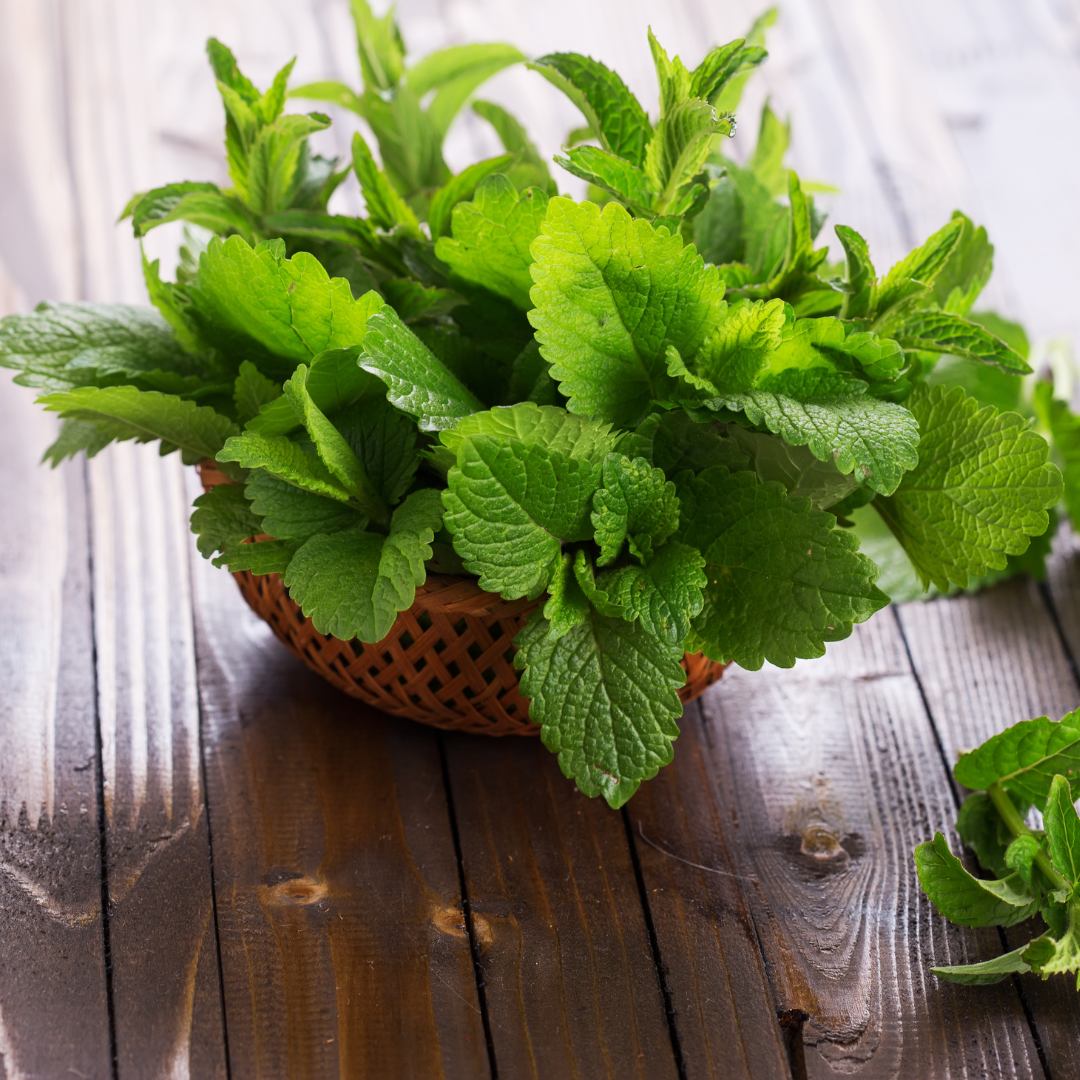
5. Peppermint (Mentha piperita)
The Ayurvedic herb peppermint (Mentha piperita) is well known for its exceptional calming effects on the digestive tract.
Peppermint helps relax the gastrointestinal tract muscles, easing cramps, spasms, and discomfort in the abdomen.
Peppermint tea, made from the plant's leaves, is a popular beverage for digestive difficulties because it helps reduce gas and bloating.
The warm, energizing tea relaxes the stomach and aids in promoting healthy digestion while also easing digestive discomfort.
Peppermint is a vital herb in Ayurvedic medicine because it can calm and support the digestive tract, providing all-natural relief for digestive issues and promoting digestive well-being.
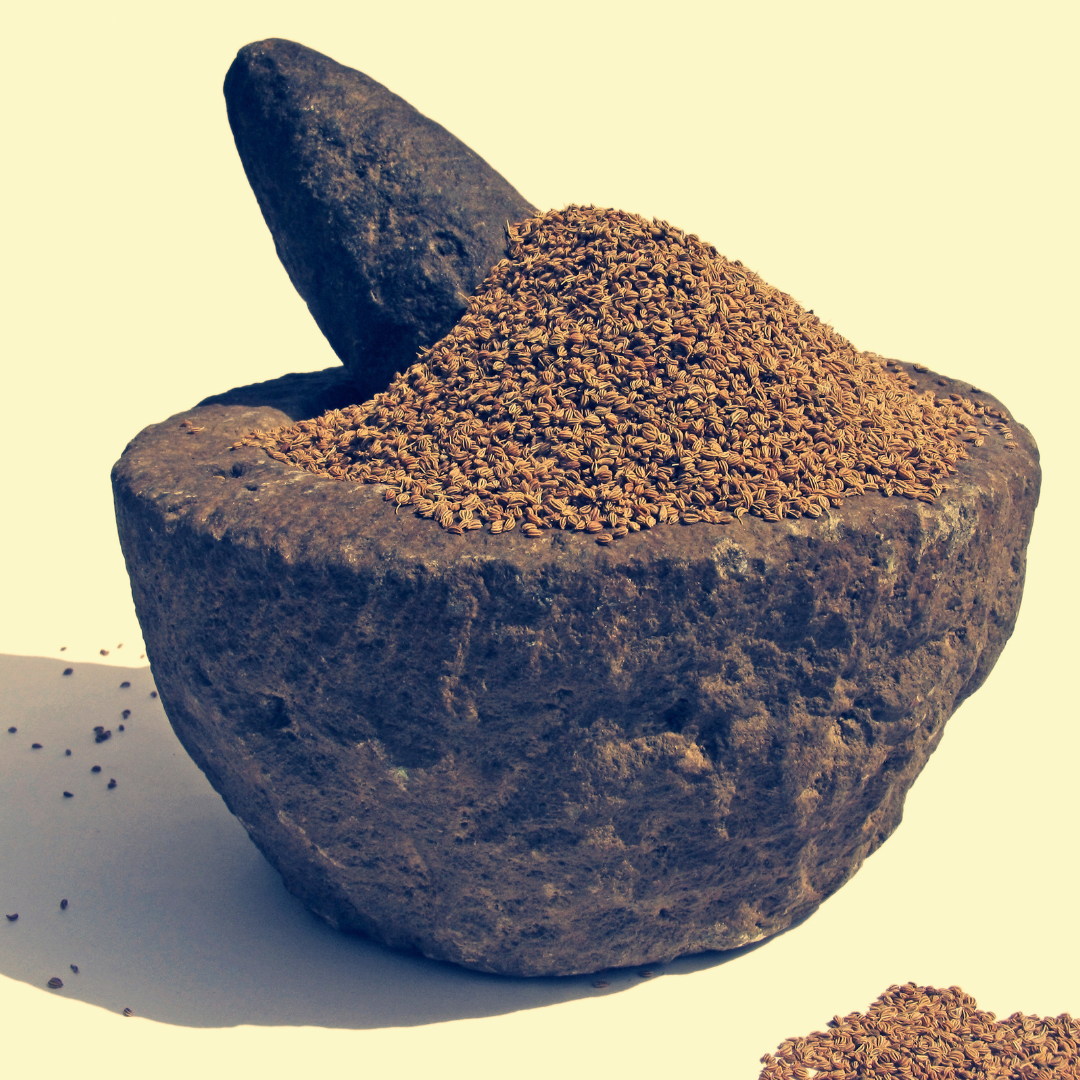
6. Ajwain (Trachyspermum ammi)
Ayurvedic medicine's most prized herb, ajwain (Trachyspermum ammi), known as carom seeds, is known for improving digestion. The ability to aid in digestion makes ajwain seeds popular.
They contribute to better digestion by triggering the release of digestive enzymes and facilitating effective nutritional breakdown and absorption.
Reduced flatulence and indigestion-related abdominal pain are two conditions for which Ajwain works very well. To help with digestion, the seeds can be chewed after meals.
They can also be infused into water to make ajwain water, which can be drunk. Ajwain is a well-liked option in Ayurvedic medication for preserving optimum digestive health because it can improve digestion and alleviate digestive problems.
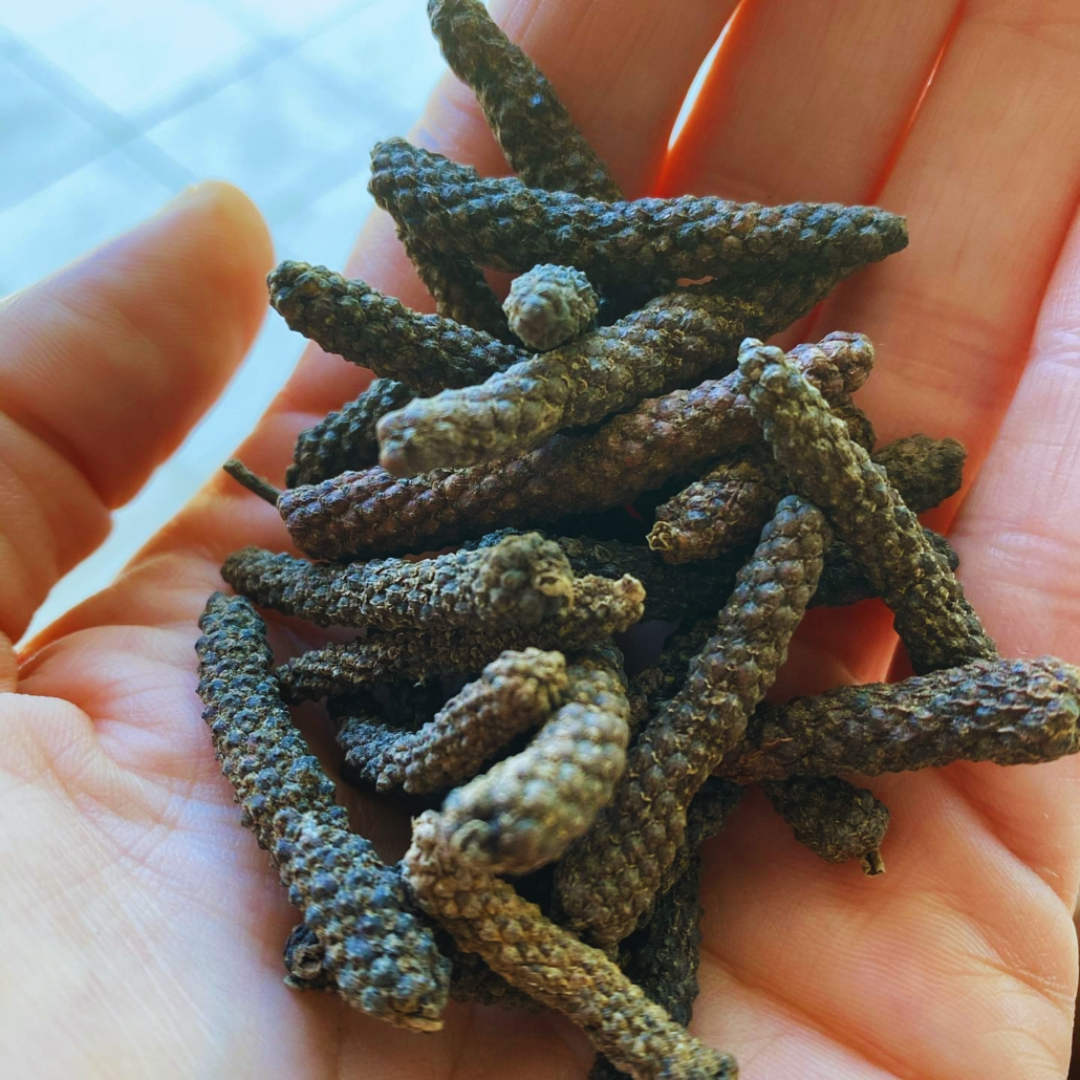
7. Trikatu
Ginger, black pepper, and long pepper are the three herbs in the potent Ayurvedic blend known as trikatu.
These herbs combine to provide a strong digestive stimulant with numerous advantages for the digestive system.
Trikatu aids in better digestion by promoting the synthesis of digestive enzymes, which assists in food breakdown and nutrient absorption. It also improves appetite, helping people with weak digestion or little appetite.
The warming and energizing qualities of trikatu help lessen flatulence and ease gastrointestinal discomfort. It can be added to food to improve digestion or taken as a supplement in capsules or tablets.
Trikatu is a proper Ayurvedic treatment for fostering healthy digestion and maximizing digestive function because of its synergistic combination of ginger, black pepper, and long pepper.
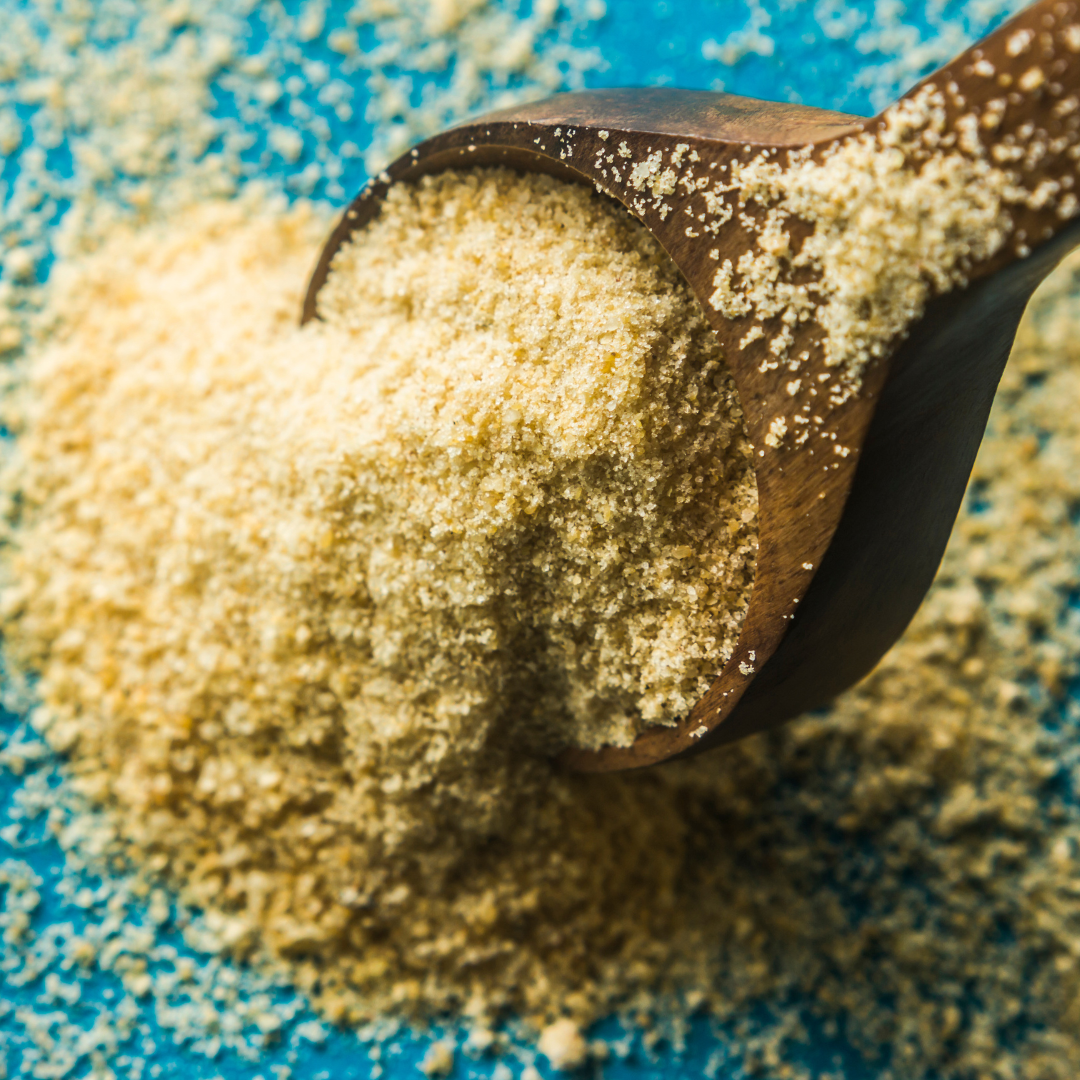
8. Asafoetida (Hing)
Resin from the Ferula species is known as asafoetida, often known as Hing. Ayurvedic medicine frequently employs it as a digestive aid and is distinguished by its potent scent.
Asafoetida has been used for centuries to treat heartburn, flatulence, and bloating. Its elements activate the digestive system's enzymes, facilitating a meal's effective digestion and encouraging efficient food breakdown.
Frequently used as a spice in food preparation, asafoetida gives meals a distinctive flavour and has favourable effects on the digestive system.
Due to its carminative effects, asafoetida is very beneficial for decreasing gas and easing stomach discomfort. Ayurvedic cuisine and therapies use asafoetida as a vital element that promotes healthy digestion in general.
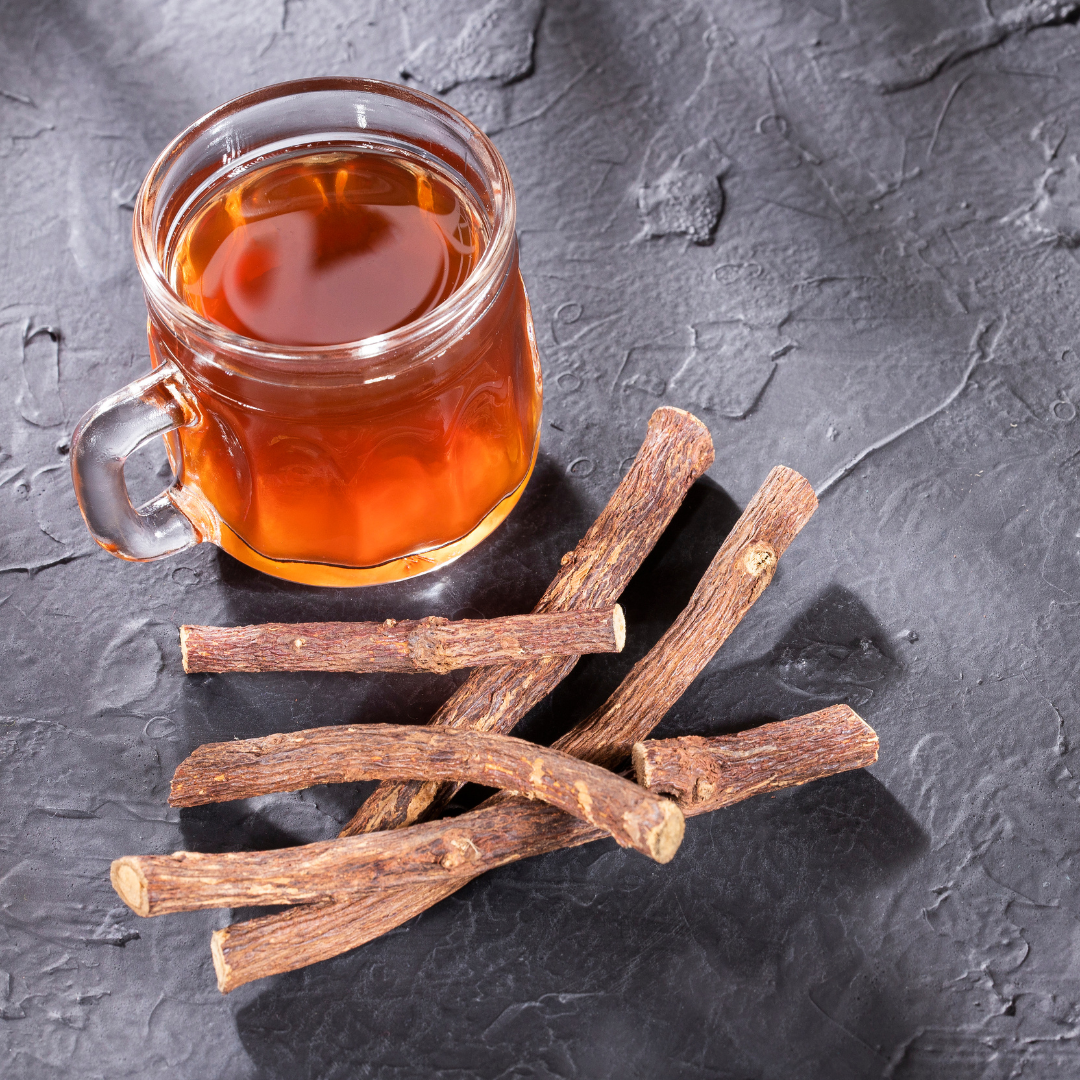
9. Licorice (Glycyrrhiza glabra)
For its calming effects on the digestive system, licorice (Glycyrrhiza glabra) is a well-known Ayurvedic herb.
A useful treatment for digestive problems, licorice root contains substances that help reduce inflammation in the gastrointestinal tract.
It facilitates better digestion by boosting food absorption and encouraging the development of digestive enzymes. Additionally, licorice relieves heartburn and acid reflux by lowering the stomach's acidity.
By safeguarding the stomach lining and preserving a balanced population of gut bacteria, licorice also contributes to good digestive health.
Licorice can be drunk as tea or taken as a supplement to benefit from its digestive properties. However, it's crucial to remember that licorice should only be used in moderation, and those with specific medical conditions or those who are pregnant or breastfeeding should avoid it.
Before taking licorice as a therapeutic herb, it is recommended that you speak with a doctor or an Ayurvedic expert.
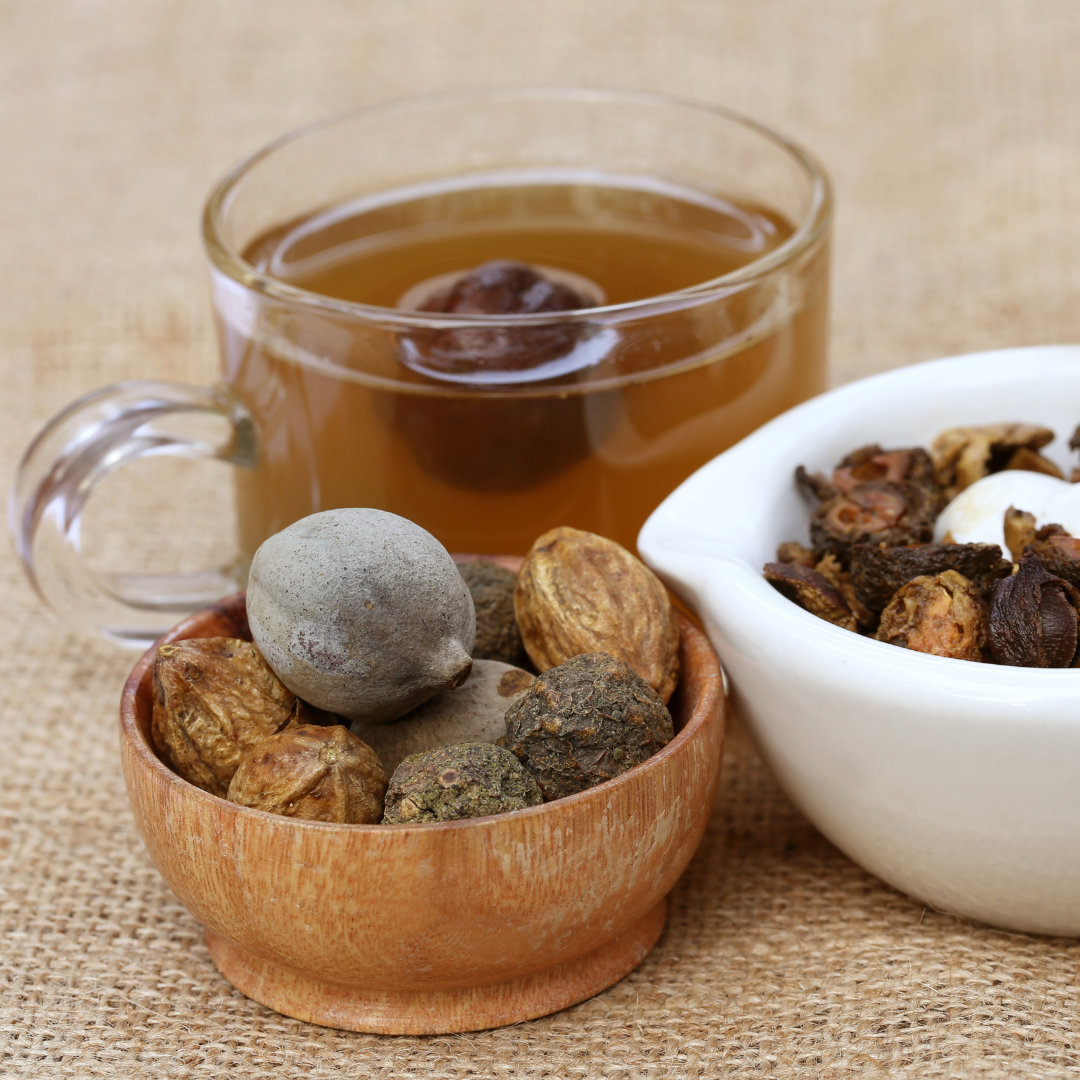
10. Triphala (Terminalia chebula)
Amalaki (Emblica officinalis), Bibhitaki (Terminalia bellirica), and Haritaki (Terminalia chebula) are the three fruits that make up the classic Ayurvedic recipe known as Triphala.
This combination is well-known for having digestive benefits and is frequently used in Ayurvedic medicine.
Triphala encourages healthy digestion by encouraging the release of digestive enzymes, assisting in effective nutrient absorption, and promoting bowel regularity.
Additionally, it has a mild laxative effect that aids in promoting good evacuation and relieving sporadic constipation.
Thanks to Triphala's well-known detoxifying properties, the body can be cleansed and purified by eliminating toxins that have built up. The antioxidant qualities of Triphala further add to its general health advantages.
It may be taken as a supplement or in powder form and combined with water or other liquids for consumption.
Due to its adaptability and comprehensive digestive support, Triphala is a popular Ayurvedic medicine for digestive wellness and general well-being.
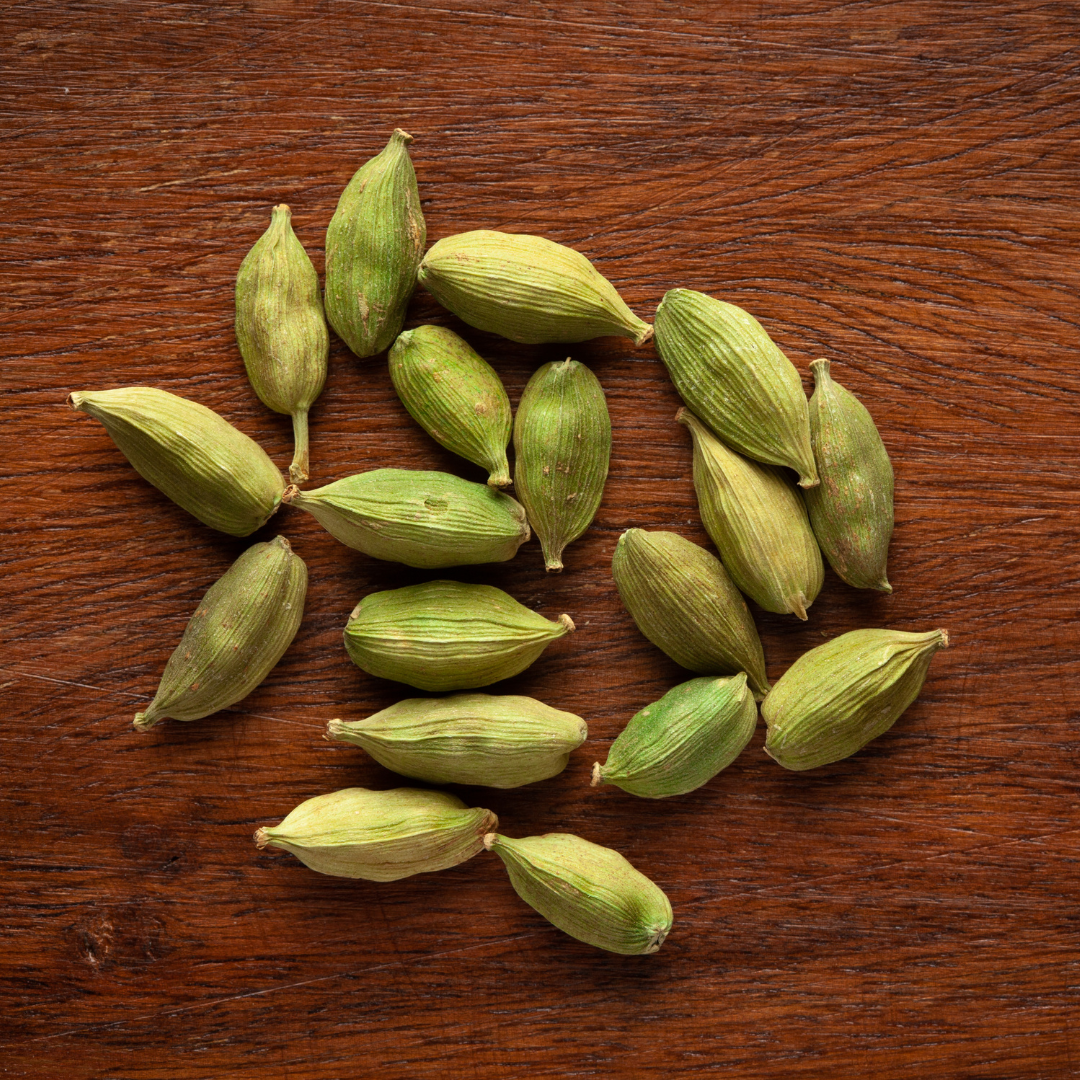
11. Cardamom (Elettaria cardamomum)
In Ayurvedic medicine, the warming spice cardamom (Elettaria cardamomum) is well known for its advantages for the digestive system.
Gas, bloating, and indigestion are just a few digestive problems it relieves. Better digestion is facilitated by cardamom's stimulation of the production of digestive enzymes, which aid in the breakdown of food. It helps to reduce bloating and relieve gas because of its carminative qualities.
Cardamom is a spice used in cooking to give food a wonderful flavour and digestive advantages. Crushed cardamom pods steeped in hot water can also be taken as tea.
Cardamom tea is a well-liked option for its calming effect on the stomach and capacity to encourage healthy digestion. Cardamom is a useful spice in general because of its digestive aid and warming effects.

12. Aloe Vera (Aloe barbadensis)
Aloe Vera (Aloe barbadensis), a multipurpose Ayurvedic herb, is well-known for its soothing impact on the digestive tract. It has calming qualities that reduce intestinal inflammation to benefit digestive health.
To aid in the breakdown and absorption of nutrients, aloe vera stimulates the secretion of digestive enzymes, which aids in good digestion.
Additionally, it promotes easy bowel movements, which maintains intestinal regularity. You can use aloe vera's digestive advantages by consuming its juice or gel.
You can extract the gel directly from the plant or buy it in readily available stores. Ayurvedic medicine frequently uses aloe vera to support a healthy digestive tract and overall well-being because of its well-known natural healing and calming capabilities.
However, before including aloe vera in your routine, it's crucial to check the quality and purity of the product and speak with a doctor or Ayurvedic practitioner.

13. Dill (Anethum graveolens)
An Ayurvedic plant known as dill (Anethum graveolens) has significant digestive advantages. Dill's leaves and seeds have anti-flatulent, anti-bloating, and anti-stomach cramping qualities.
Dill leaves are frequently used in cooking to give a variety of meals a fresh flavour. They decrease gas and calm the digestive system, and the chemicals in dill assist in relieving stomach discomfort.
On the other hand, dill seeds can be steeped in hot water to make a herbal infusion that can be ingested. You can benefit from this infusion's aid for digestion and use it to treat digestive problems.
Dill is a useful addition to Ayurvedic therapies for supporting healthy digestion and treating digestive disorders. It is a versatile herb that can be easily included in culinary recipes or ingested as an herbal infusion.
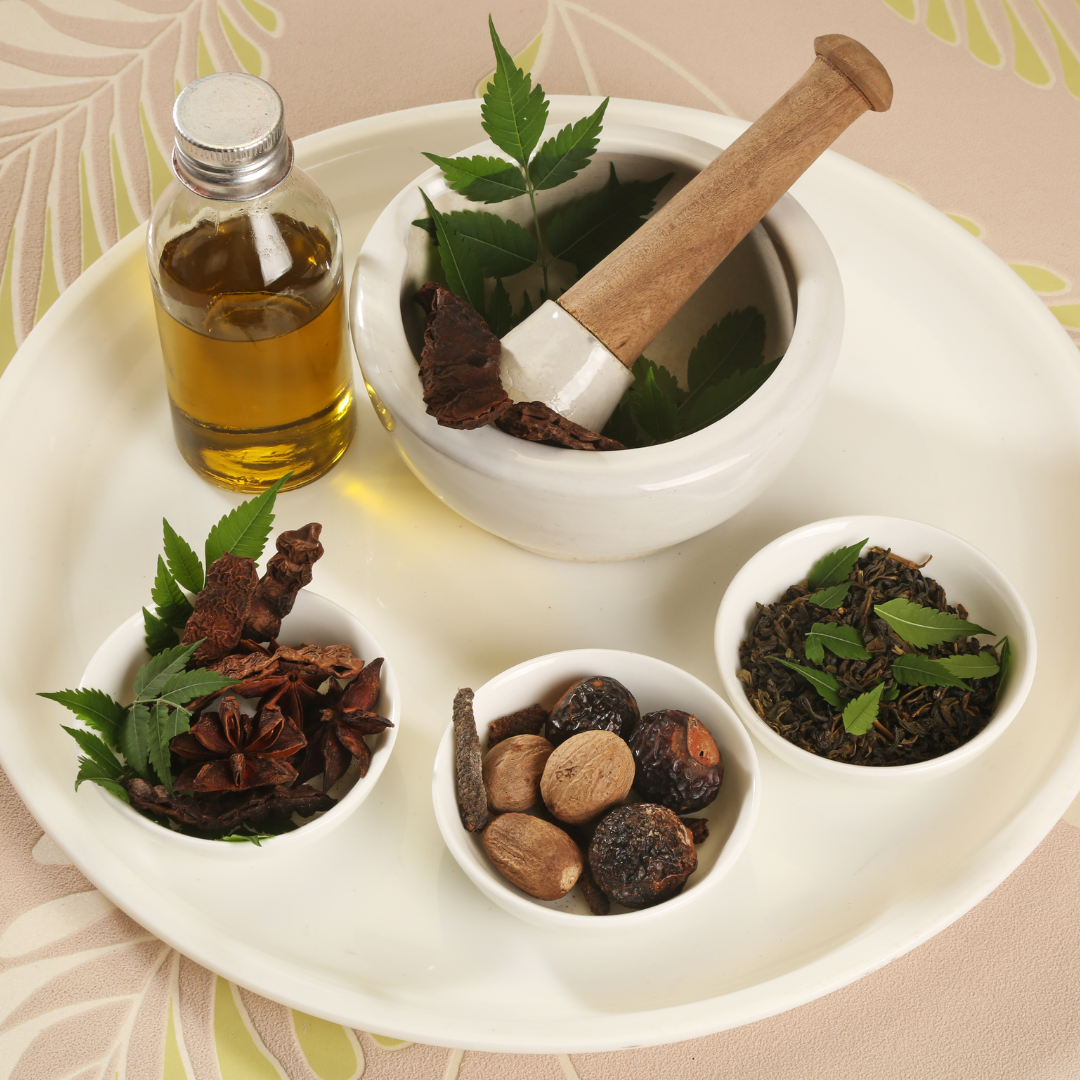
Conclusion
In conclusion, Ayurvedic medicines provide a holistic and natural way to help digestion and foster digestive well-being. Among the greatest Ayurvedic herbs for digestion are ginger, cumin, coriander, fennel, peppermint, ajwain, trikatu, asafoetida, licorice, cardamom, aloe vera, and dill.
These herbs provide various benefits that assist healthy digestion, soothe indigestion, lessen gas and bloating, support regular bowel movements, and improve nutrient absorption.
These herbs are simple to incorporate into your daily regimen, whether consumed as supplements, utilized as cooking spices, or brewed into teas.
However, it is always advisable to speak with a medical expert or an Ayurvedic practitioner for tailored advice and to confirm safety and suitability for your particular health needs. An improved digestive system and well-being can result from embracing the power of Ayurvedic herbs.
I trust you enjoyed this article on the Best Ayurvedic Herbs For Digestion. Please stay tuned for more blog posts to come soon. Take care!
JeannetteZ
>>>Please click here to read my all-inclusive article about A Comprehensive Guide To Healing Naturally<<<
>>>Are you interested in Natural Healing through Herbs? Please click here for my #1 Recommendation<<<
Your Opinion Is Important To Me
Do you have thoughts, ideas, or questions? I would love to hear from you. Please leave your questions, experiences, and remarks about the Best Ayurvedic Herbs For Digestion article in the comments below. You can also email me at Jeannette@Close-To-Nature.org.
Disclosure
This post may contain affiliate links. As an Amazon Associate and other affiliate programs, I earn from qualifying purchases at no extra cost to you. Please read my full affiliate disclosure.
You might also enjoy these blog posts:
Best Traditional Chinese Medicine For Natural Healing
Best Natural Therapies For Physical Well-Being
Best Steps To Grow Turnips In Containers
Healthiest Root Vegetables For Gardening
Best Steps To Grow Chickpeas In Containers









Youre so cool! I dont suppose Ive learn something like this before. So good to find somebody with some authentic thoughts on this subject. realy thank you for starting this up. this website is one thing that is wanted on the internet, somebody with somewhat originality. useful job for bringing one thing new to the web!